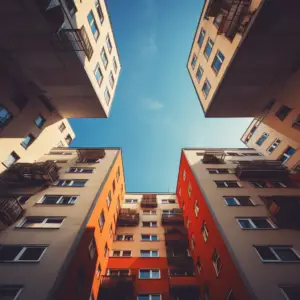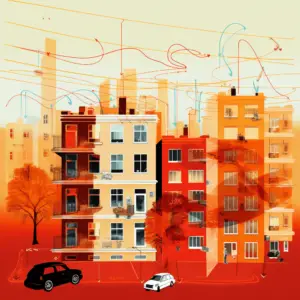Noise regulations, Receiving a noise complaint from the landlord means that you are too noisy. In some other cases, you may even receive a police visit in your apartment due to loud noise. However, there is no definite answer to how much noise is too much in an apartment. This article will delve deeper into various considerations that indicate or can help determine how much noise is legally disruptive.
To begin with, being ‘too loud’ varies with location. For example, if you live near a busy highway, you may have your speakers at full volume and be okay. On the contrary, living in a quiet area means that even slight movement in your house will cause noise. The noise level may also be dependent on time of day to be considered too much. Late-night loud music is an issue. But if it happens during the day, the loud music from your party may go unnoticed.
Notably, there are noise control acts that aim to promote protection for all people. According to the acts, noise is a danger to the health and welfare of the public. But the acts may not have offered effective noise solutions.
Table of Contents
Loud Levels by Location

As stated above, the noise allowable in your neighborhood depends on your county or location. In most areas, you can find an exhaustive list that shows the existing noise ordinances by city and state. You can go through the community, city, or city noise guidelines so as to understand how much noise is too high in your area.
Consider Knowing the Decibels
Have you thought about measuring noise? A food blender can produce 85 decibels (dB), while a music concert can go up to 120 dB. If you are exposed to the high dBA sound for a long period, your hearing capabilities may be affected.
Your neighbors may not expose you to such high dBA sounds because it is painful for them too. Typically, many apartments allow 60-70 dBA. This is the best range that cannot cause hearing problems or disturb neighbors’ children doing their school homework. Some household appliances such as dishwashers, food processors, and other kitchen appliances might produce noise that some neighbors consider loud.
Loud Is Subjective
Some people may not tell the exact decibel that is too loud unless they use a sound meter. Instead, the level of noise each person finds annoying is quite subjective. Noise level is a contributing factor, but the primary considerations are repetitiveness, timing, and tone. But it is always good to be on good terms with all your close neighbors. There is no need to engage in noise war with your neighbors to co-exist in the apartment peacefully.
Review Your Apartment Lease
Many tenants do not enjoy reading the fine print. However, the lease agreement might answer your question, “How loud is it?”. The guidelines default to your current location if the fine print does not have any info about volume or quiet hours. You can also review the ordinances and laws in the municipal office. Additionally, you can talk to your landlord about noise matters before you move in. Though you may not get a good answer, it can give you an idea of what to anticipate during your stay.
Noise Meters
How about you take time to measure sound levels in your apartment? Buying a sound meter can help you avoid noise or know when other tenants are playing or producing too loud noise from their apartment. This could help determine if it is too high before raising a noise complaint to the landlord or police. The noise meter can help you avert problems with other tenants over noise from your apartment. Alternatively, you can take advantage of smartphone apps that measure sound levels.
Penalties for too Loud Noise

What will happen when you report your neighbor0 for being too loud? The result will entirely depend on the lease agreement and ordinances in your location. Landlords may not permanently evict noisy tenants. Landlords understand that living in the same apartment means sharing some noise.
When your landlord receives multiple complaints about too-loud noise from your apartment, they may issue a warning. However, a neighbor will always approach you before raising the official complaint. Warning neighbors about the noise from their apartments can help reduce it. Good neighbors will listen to you and try to keep it low to give you a peaceful stay.
Be careful, though. Late-night noise can lead to a police case. Noise regulations neighbors notify the police that you are rude and too loud noise comes from your late-night party, you may be fined or face other penalties. It is important to note that the penalties for being too loud vary from location to location. Moreover, noise regulation ordinances stipulate the proper action to be taken in the location.
Conclusion
Noise regulations want to live well with your neighbors, you should always make sure there is no too loud noise emanating from your premises. Be cautious enough not to cause havoc in your location with loud music at late nights. Also, know the noise limits in your area by reading the location ordinances. In addition, you can talk to your landlord before you move in to find out about noise levels. Buy a noise meter to help find out when there is too much noise in your apartment.
It is also crucial to let the landlord know that you like hosting late-night parties every weekend. That way, you will learn if they accept any kind of noise at night or not. This will help you find a location where you will get weekly penalties for playing too loud music. Understand that neighbors need quiet time. They may also have school-going kids who need quiet time to do their homework. Also, they may have infants who might be affected by the too-loud noise. Noise regulations, therefore, an excellent idea to maintain the accepted levels of noise in your neighborhood.


